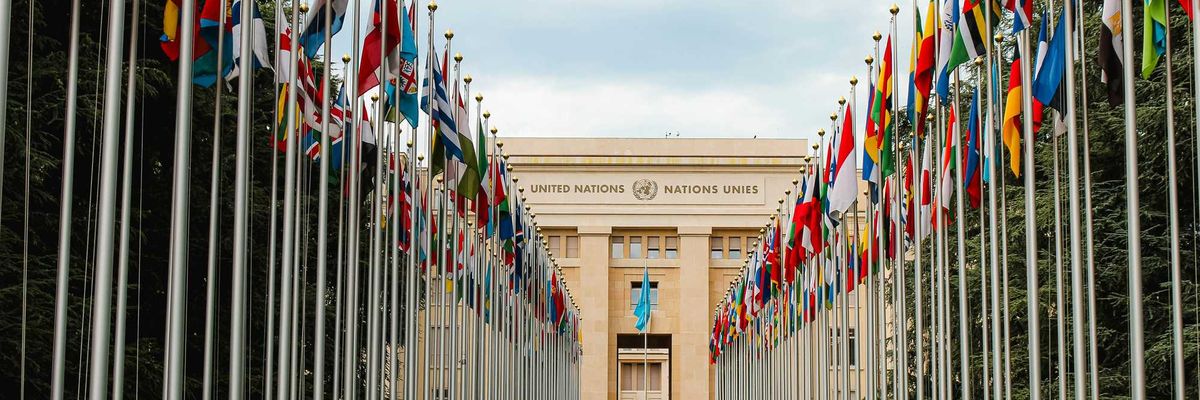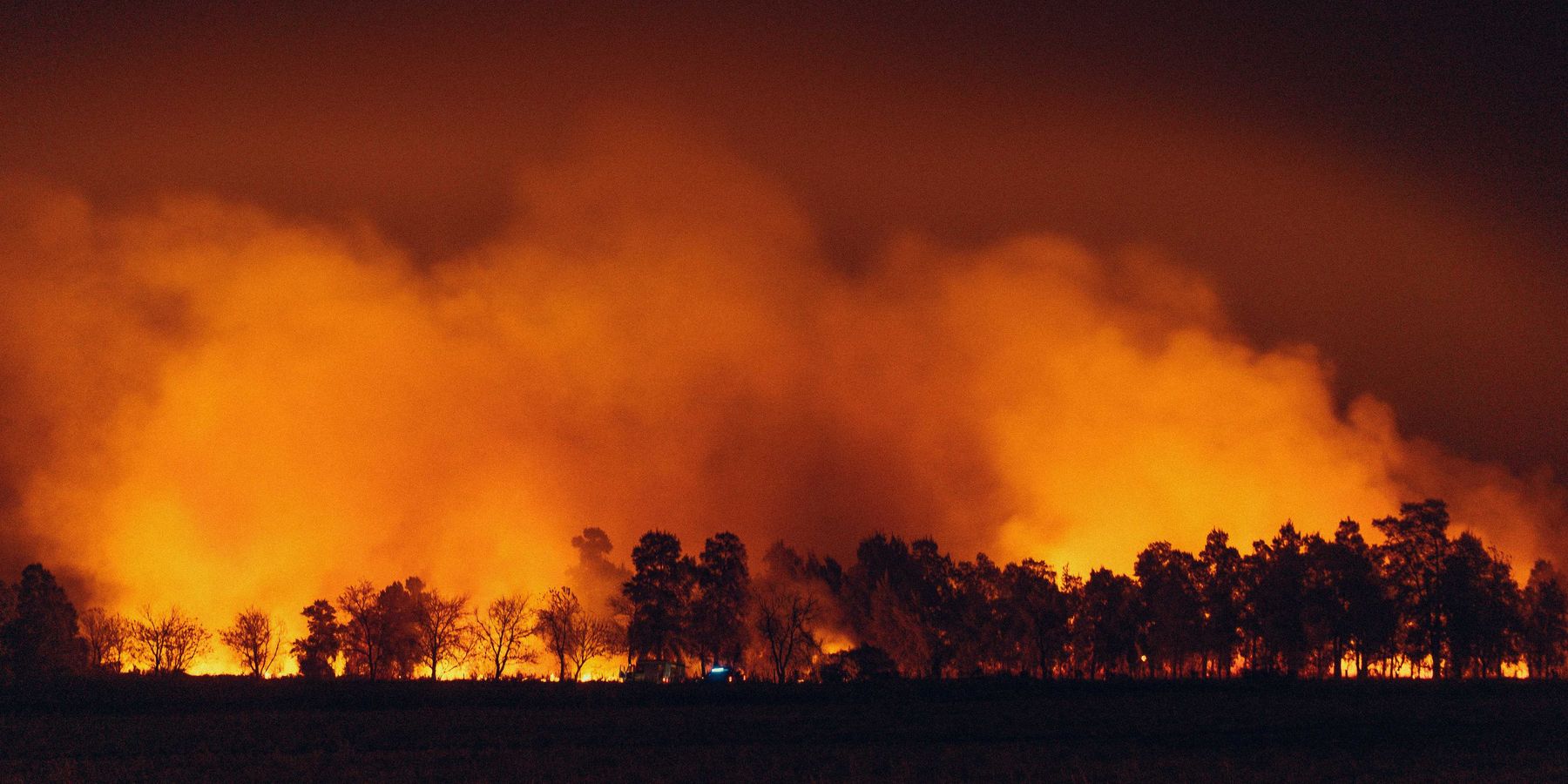far right politics
European election results could hinder ambitious climate policies
Recent gains by far-right parties in the European Parliament elections may obstruct efforts to implement more ambitious climate policies, though key net-zero commitments are expected to persist.
In short:
- The European Green Party suffered significant losses, while far-right parties made substantial gains in the recent European Parliament elections.
- Voter concerns about the cost-of-living crisis and geopolitical tensions have taken precedence over climate change, impacting election outcomes.
- Despite the political shift, researchers believe core climate goals like the European Green Deal are likely to remain intact.
Key quote:
"I don't think that there is going to be appetite to completely ditch the Green Deal."
— Richard Klein, Stockholm Environment Institute
Why this matters:
The shift in political power within the European Parliament may slow the advancement of stronger climate initiatives, affecting long-term environmental targets. Understanding these changes is important, as they may influence the EU's approach to climate policy and international environmental leadership.
Polish farmer protest movement reveals far-right connections
A new Polish farmers' group with far-right ties has gained political attention after protesting against EU climate policies and Ukrainian food imports.
Marta Kasztelan, Clare Carlile, and Phoebe Cooke report for DeSmog.
In short:
- Orka, a recently formed farmers' group, suspended a hunger strike after securing talks with Polish President Andrzej Duda.
- The group has ties to the far-right Confederation Party, raising concerns about its political motivations.
- Protests have emerged across Poland against EU environmental regulations, with Orka aiming to discard the EU's Green Deal.
Key quote:
“It’s very difficult to fight this kind of misinformation.”
— Krzysztof Cibor, head of campaigns, Greenpeace Poland
Why this matters:
The rise of Orka reflects how populist and far-right parties can leverage local discontent to challenge EU policies, potentially destabilizing political landscapes and undermining efforts to combat climate change.
For more about the rise of the far-right in Europe:
Green policies and the rise of the far right in Europe
A new study reveals a growing backlash in Europe against green policies, which is driving voters toward far-right political parties.
In short:
- Rising energy costs linked to green initiatives have increased support for far-right parties in Europe, such as the Netherlands and Germany.
- Restrictions on gas-powered vehicles and mandatory heat pump installations have sparked widespread protests and political shifts.
- These changes are perceived as unfairly burdening individuals rather than spreading costs across society and corporations.
Key quote:
"This has really expanded the coalition of the far right."
— Erik Voeten, professor of geopolitics at Georgetown University
Why this matters:
When people feel that changes are imposed on them without adequate consultation or consideration of their immediate concerns, there's a risk they will reject not just the specific policies but also the parties that promote them.
Far-right parties have capitalized on this discontent by framing green policies as elitist and disconnected from the common man's immediate economic concerns, promising to roll them back in favor of short-term economic relief.
Does the U.S. have its own far-right problem? Peter Dykstra argued last year that the Supreme Court has taken a brazen anti-regulatory turn. It’s our planet and health that will suffer.
Farmers' discontent fuels far-right agendas in Europe
Amid mounting grievances over agriculture policies, Europe’s far right capitalizes on farmer protests to push their political agenda.
Emily Rauhala and Virgile Demoustier report for The Washington Post.
In short:
- Farmers in Europe express frustration over economic pressures and strict regulations, leading to widespread protests.
- Far-right parties leverage these protests, promising to overhaul agricultural policies and appealing to nationalistic sentiments.
- Key elections loom as these parties gain traction, suggesting a potential political shift in the region.
Key quote:
"It’s a European mistake that the voice of the people is not taken seriously. … We have to find new leaders who really represent the people."
— Viktor Orban, Prime Minister of Hungary
Why this matters:
Farmers often face economic challenges due to fluctuating market prices, high production costs, and competition from imported goods. When agricultural policies fail to adequately support farmers or address their concerns, it can exacerbate their economic strain. This frustration may lead them to seek solutions outside mainstream political channels.
Arthur Neslen: EU retreats from environmental commitments amid far-right pressure
The EU has been backpedaling on its environmental promises, yielding to agribusiness and far-right demands, risking future ecological stability.
In short:
- The EU has scrapped initiatives aimed at reducing pesticide usage, protecting nature, and curbing toxic chemicals due to external pressures.
- This rollback is partly in response to fears of a far-right surge in upcoming elections, despite potential long-term environmental consequences.
- The EU's deforestation law, a critical part of its green agenda, faces threats of dilution, raising concerns about global forest conservation.
Key quote:
“Von der Leyen risks obliterating her last remaining achievement on land use over the last five years. There is already almost nothing left of the green deal.”
— Julia Christian of the forest conservation group Fern
Why this matters:
The recent electoral successes of right-wing parties are expected to influence the European Union's political priorities and policy initiatives, with potential shifts toward more conservative positions on issues like environmental policies.
An Arizona case blaming immigration for climate change echoes far-right environmentalism and ecofascism
As the impacts of human-induced climate change become harder and harder to ignore, some on the right have moved away from denying it exists and toward a new strategy: blaming immigrants for contributing to the problem.









